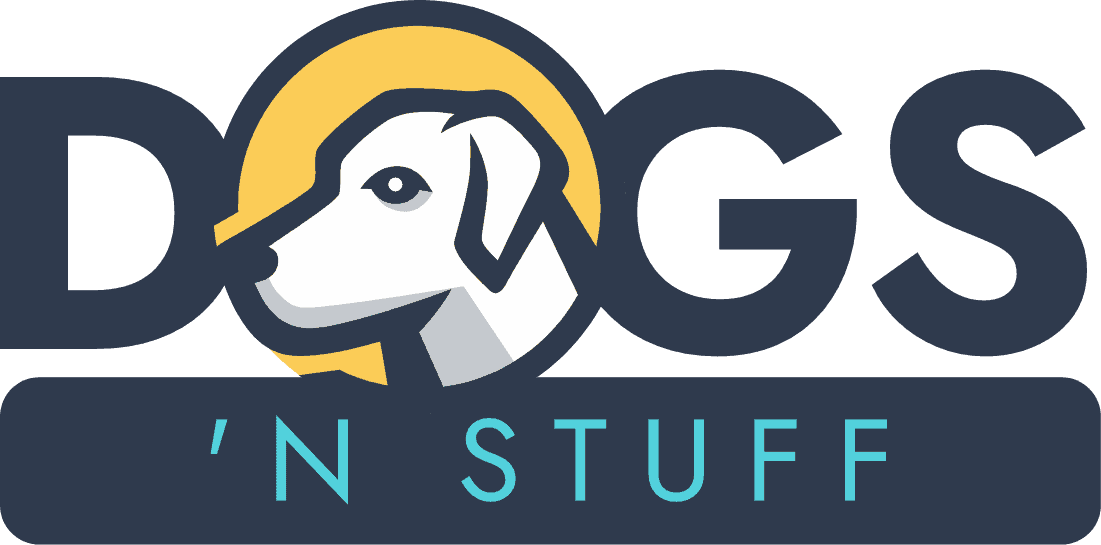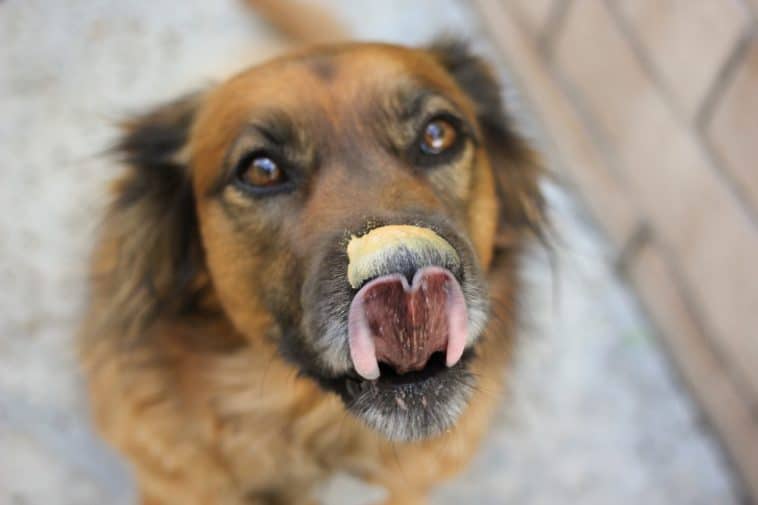Dogs are inquisitive and can be greedy by nature if you give them half the chance to be.
You have to be very aware of what they’re eating and putting in their mouths, as they don’t have an awareness of what foods they can and cannot eat.
However, if you’ve recently got a dog and noticed they’ve gotten into the butter tub you might be anxious to know: Can dogs eat butter?
In this article, I will explore whether dogs can eat butter along with the symptoms to look out for if you suspect that they have eaten butter.
So, let’s take a look.
Table of Contents
Can dogs eat butter?
While dogs can technically eat butter, it’s not a good option for your dog as it’s mostly just saturated fat with no health benefits and will highly likely upset your dog’s stomach. If your dog has eaten butter, he will likely only vomit it up or have an upset stomach for a few days.
Although butter isn’t toxic to dogs and isn’t life threatening, you should avoid giving your dog butter in the future and take extra care to keep your refrigerator closed.
Is butter dangerous for dogs?
Generally, no – butter isn’t considered to be dangerous for dogs. It’s not lethal in the same way that the popular sweetener, xylitol or chocolate is.
Typically speaking, small quantities of butter will usually make their way through your dog’s digestive system without causing significant damage.
However, this doesn’t mean that this won’t cause a few inconveniences along the way. As a dairy product, butter contains lactose, which is a significant allergen amongst dogs.
That being said, while a stick of butter won’t necessarily compromise their health, it will more than likely cause a bout of vomiting and diarrhea.
It’s important to mention that this will largely depend on how resilient your dog is. Some dogs have stronger stomachs than others and can deal with the dairy in butter better than other dogs might.
As a result, it can be hard to know how your specific dog is going to react until it happens.
Symptoms to look for if your dog has recently eaten butter

Dogs can have varying degrees of lactose intolerance. Some might experience only mild symptoms, while other cases may be more severe – it entirely depends on the dog and how much butter they have consumed in a short period of time.
The most common symptoms your dog will experience include:
Vomiting
Depending on your dog’s size, they might immediately vomit the butter if it’s too much for their digestive system. Alternatively, it might continue to make them feel unwell in the way of an upset stomach, and you’ll be able to tell they’re not quite themselves.
Vomiting can dehydrate your dog very quickly, so you will need to monitor how much water they are consuming throughout the day very closely to ensure they’re getting enough fluids.
Upset stomach
If your dog doesn’t vomit up the butter, the likelihood is that it will cause stomach cramps, bloating, and eventually diarrhea as they digest the butter.
Your dog will most probably pass the butter in the form of loose stools for a day or two. After that, their digestive system should, for the most part, be back on track.
Again, you will need to make sure that your dog is drinking plenty of fluids throughout the day, and encourage them to eat even if they seem to have lost their appetite. They should return to normal within a few days, but it’s important to closely monitor them.
While vomiting and an upset stomach are to be expected, in rare cases, you will need to keep a close eye on your pooch for the following conditions:
Gastroenteritis
Gastroenteritis occurs when bacteria or a virus enters the digestive system. However, it can result when a dog consumes a foreign food in large volumes, such as a stick of butter.
This condition usually leads to inflammation of the intestines and stomach, which results in symptoms such as vomiting, stomach ache, lethargy, and diarrhea in your pup.
Gastroenteritis typically lasts for a couple of days, during which you need to take special care of your dog’s diet to help them recover quickly.
If you’re unsure on how to monitor your dog, the safest option is to call your veterinarian. They will be able to offer you advice and provide you with further information on how to care for your unwell pooch. After all, it’s better to be safe than sorry.
Pancreatitis
Pancreatitis in dogs is caused by a poor diet that includes lots of fats over a long period. However, it can also suddenly worsen if a dog consumes a lot of fat in one go, such as eating a stick of butter.
Symptoms of pancreatitis include a fever or low body temperature, diarrhea, lethargy, difficulty breathing, an irregular heartbeat, and dehydration.
In mild cases, pancreatitis can resolve in 2-3 days, provided that your dog receives immediate medical attention.
However, if a dog suffers from acute pancreatitis and they aren’t taken to a vet quickly, the condition might develop into hemorrhagic pancreatitis and even result in sudden death in rare cases.
If you suspect that your dog has pancreatitis, it’s crucial that you call and get your dog to your vet as soon as possible. Failure to do so could be fatal to your pooch.
In summary
While dogs can technically eat butter, it’s not a good option for your dog as it’s mostly just saturated fat. This can lead to a variety of symptoms, including vomiting and diarrhea of varying degrees depending on the size of your dog and how much butter they consumed.
That being said, it’s best if you keep your pooch out of the refrigerator as best you can. If your dog does accidentally eat butter, their digestive system should be back to normal within a few days.
If it isn’t, it’s better to contact your vet to ensure that nothing more sinister is happening.

